


Table of Contents
Introduction
Poker, a game filled with mystery and strategic depth, has entranced players worldwide for centuries. With origins in diverse cultures and a rich historical evolution, has transcended its status as just a card game to become a mirror of human psychology, skill, and probability. Its journey has traversed continents and epochs, molded by the passage of time and the subtle intricacies of gameplay.
Is a fascinating journey through time, blending elements of skill, chance, and cultural evolution. While its exact origins are debated, poker has evolved from various card games that trace back centuries. Here’s a brief overview of its historical development:
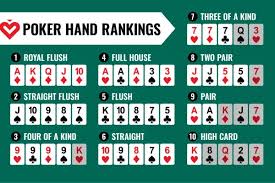
Early Roots:
Persian Influence:
- Some historians suggest that poker origins can be traced back to a Persian card game called “As Nas,” which dates back to the 17th century. As Nas involved a 25-card deck with rounds of betting and hand rankings somewhat similar to modern poker.
French Connection:
- Another potential ancestor is the French game “Poque,” which was popular in the 18th century. Poque involved bluffing and betting and used a deck of 20 cards with various combinations.
American Development:
Colonial America:
- as we know it today likely evolved in the early 19th century in the United States. It drew elements from various European card games brought over by immigrants.
Spread and Popularity:
- grew in popularity during the 19th century, especially during the Gold Rush era. It was commonly played on riverboats along the Mississippi River, where it became a staple of gambling culture.
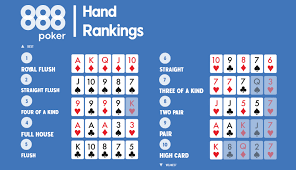
Key Developments:
Civil War Influence:
- During the Civil War, soldiers on both sides played variations of poker to pass the time, further spreading its popularity across the country.
Standardization:
- The rules of poker gradually became more standardized, with the introduction of the 52-card deck and the concept of flushes and straights in the mid-19th century.
Modern Era:
20th Century:
- Continued to evolve throughout the 20th century, becoming increasingly popular in casinos and private games alike. The World Series of Poker (WSOP), established in 1970, played a significant role in promoting the game and turning it into a spectator sport.
Online Poker:
- The advent of the internet in the late 20th century revolutionized again, making it accessible to millions of players worldwide through online poker rooms and tournaments.
Global Phenomenon:
- Poker has become a global phenomenon, with professional players achieving celebrity status and tournaments offering substantial prize pools. Variants like Texas Hold’em have become the dominant form of played around the world.
In summary, poker’s history is a story of adaptation, blending different cultural influences and evolving with the times. From its humble origins in Europe and Persia to becoming a global sensation in the 21st century, remains a game that captures the imagination and strategic thinking of players worldwide.
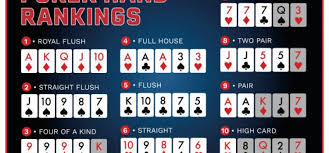
Rules And Regulation
The rules and regulations of poker can vary depending on the specific variant being played, but there are general principles and common rules that apply across most versions of the game. Here’s an overview of the fundamental rules of poker:
1. Objective:
- The primary objective in most poker variants is to win chips or money by either having the best hand at showdown or by convincing opponents to fold their hands.
2. Deck:
- Poker is typically played with a standard 52-card deck. However, some variants may use multiple decks or include wild cards.
3. Hand Rankings:
- Hand rankings determine the winner at showdown. The standard hand rankings, from highest to lowest, are:
- Royal Flush
- Straight Flush
- Four of a Kind
- Full House
- Flush
- Straight
- Three of a Kind
- Two Pair
- One Pair
- High Card
4. Betting Rounds:
- Poker games typically involve betting rounds where players can bet, check (pass the action to the next player without betting), raise (increase the amount of the bet), or fold (discard their hand and forfeit any chips bet).
5. Game Flow:
- Pre-Flop: Players are dealt hole cards (private cards), and the first round of betting begins.
- Flop: Three community cards are dealt face-up on the table, followed by a betting round.
- Turn: A fourth community card is dealt, followed by another betting round.
- River: A fifth and final community card is dealt, followed by a final betting round.
- Showdown: If there are remaining players after the final betting round, they reveal their hands, and the player with the best hand wins the pot.
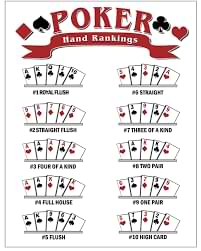
6. Blinds and Antes:
- In many poker games, particularly Texas Hold’em and Omaha, players are required to post blinds (forced bets placed by two players before the start of each hand) or antes (small forced bets placed by all players before the hand begins).
7. Pot-Limit, No-Limit, and Fixed-Limit:
- Poker games may have different betting structures. Pot-Limit means players can bet up to the current size of the pot. No-Limit allows players to bet any amount up to their entire stack. Fixed-Limit sets specific betting limits for each round.
8. Rules of Conduct:
- Players are expected to adhere to etiquette and rules of conduct, such as not revealing their hands to other players prematurely, not discussing strategy with active players during a hand, and respecting the dealer’s decisions.
9. House Rules:
- Casinos and home games may have additional rules or variations, including rules for handling misdeals, disputes, and player behavior.
10. Variants:
- There are numerous variants of poker, each with its own specific rules and gameplay nuances, including Texas Hold’em, Omaha, Seven-Card Stud, and more exotic variants like Pineapple and Badugi.
It’s essential for players to familiarize themselves with the specific rules of the variant they are playing, as deviations can significantly impact strategy and gameplay dynamics. Additionally, different poker rooms or casinos may have their own house rules that players should be aware of before participating.
| Engine Specifications: | Engine Type: Diesel, inline 4-cylinder Displacement: [Insert displacement in cc] Max Power: [Insert power output in kW or HP] at [Insert RPM] Max Torque: [Insert torque output in Nm] at [Insert RPM] |
| Dimensions: | Overall Length: [Insert length in mm] Overall Width: [Insert width in mm] Overall Height: [Insert height in mm] Wheelbase: [Insert wheelbase in mm] Ground Clearance: [Insert ground clearance in mm] Turning Radius: [Insert turning radius in meters] |
| Payload Capacity: | Gross Vehicle Weight (GVW): [Insert GVW in kg] Payload Capacity: [Insert payload capacity in kg] |
| Transmission: | Transmission Type: Manual Number of Gears: [Insert number of gears] |
| Fuel Tank Capacity | |
| Brakes: | Front Brakes: [Insert type of front brakes] Rear Brakes: [Insert type of rear brakes] |
| Suspension: | Front Suspension: [Insert type of front suspension] Rear Suspension: [Insert type of rear suspension] |
| Tyres: | Tyre Size: [Insert tyre size, e.g., 165/80 R14] Tyre Type: [Insert tyre type, e.g., radial] |
| Features: | Air Conditioning: Available or Not Available Power Steering: Available or Not Available Central Locking: Available or Not Available Audio System: Available or Not Available Seat Capacity: [Insert number of seats] |
| Safety Features: | Seat Belts: Available ABS (Anti-lock Braking System): Available or Not Available Airbags: Available or Not Available |
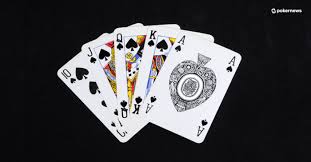
Conclusion
In conclusion, poker stands as a timeless testament to the blend of skill, strategy, and chance that has fascinated players for generations. From its humble origins in Europe and Persia to its evolution into a global phenomenon, poker has transcended cultural boundaries to become a cherished pastime and competitive sport.
The game’s enduring appeal lies in its complexity and the myriad strategic possibilities it offers. Whether played in smoky backrooms, luxurious casinos, or online platforms connecting players across continents, poker remains a dynamic test of wits and nerve.
Beyond its gameplay, poker reflects deeper aspects of human nature—its psychology, risk assessment, and the art of reading and bluffing opponents. It teaches patience, resilience, and adaptability, traits that extend beyond the poker table into everyday life.
As poker continues to evolve with technology and cultural shifts, its allure persists, attracting new generations of players eager to master its intricacies and revel in its drama. Whether for fun among friends or high-stakes competition in global tournaments, poker continues to captivate and inspire, ensuring its place as a timeless pursuit in the annals of card games.
You May Also Want:
- Mega Jackpot
- Mega Sabong
- Dark Gold 777
- The SLOTSLV: FREE 180 EVERYDAY PLAY NOW!
- Cgebet Online Casino
- GGBet Online Casino
- PCSO E-Lotto
- Laro88 Casino
- BetKFC
- kaswerte
- 99Fortune
- Milyo88
- Milyon88cc Bingo
- Milyon88cc Fishing Game
- Milyon88cc Casino
- Milyon88cc News
- Milyon88cc Uaap
- Milyon88cc tekken
- Milyon88cc disclaimer
- Milyon88cc elotto faqs
- Milyon88cc bendito casino
- Milyon88cc Mpl PH
- Milyon888
- Pokerstars
Leave a Reply